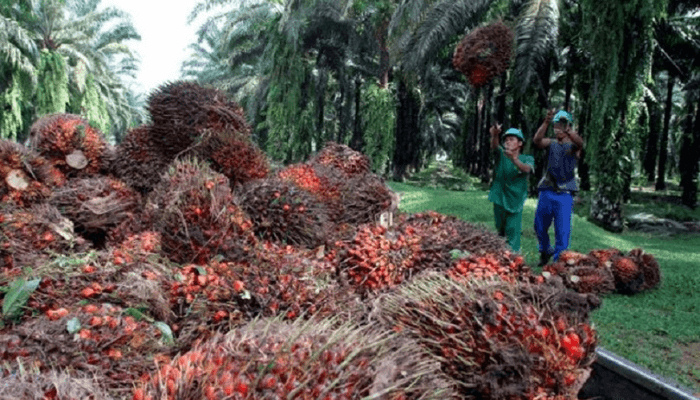The National President, National Palm Produce Association of Nigeria, NPPAN, Alphonsus Inyang, disclosed that Nigeria’s oil palm is capable of contributing $20 billion annually to Gross Domestic Product, GDP, along with massive job creation along the value chain.
Speaking in an interview with our correspondent, Inyang pointed out that the banks in Nigeria are more interested in funding oil processing while scarcity of palm fruits is hampering that effort.
He said: “The local investors are having problems of finding primary production. Most of the banks in Nigeria are more interested in funding palm oil processing whereas we don’t have enough fruits on the trees to feed the mills because most of the palm trees have grown wild, having been planted since independence and after the civil war.
“In Malaysia, Indonesia and Thailand it is the duty of government to develop new plantations and we’re calling on our governments to do so, to sit down with us to develop an enduring roadmap for this tree of life called oil palm. With oil palm we can contribute over 20 billion dollars to the GDP within a short period.
“Between September and November, myself and my Vice, Hon. Harrison Okpamen, have traveled to Indonesia, Thailand and Malaysia twice seeking for investments and collaborations in oil palm and we are glad to tell Nigerians that we are getting some ears, all we need is cooperation of our governments to launch out.”
Speaking on his association’s effort in tackling the menace of adulteration of the commodity, he said, “NPPAN has engaged a consultant who is developing a strategy which will soon be tabled before the Federal and State Governments on how to curb this highly dangerous menace.”

However, he (Inyang) encouraged potential investors that, “With an investment of N2 million spread over four years per hectare an investor stands to make a minimum profit of over N2 million per year for 30 years from sales of palm oil alone. Other revenues also accrue from palm kernel oil, palm kernel cake, palm Kernel shell, empty fruit bunches, mesocarps fibres, broom, sludge, and others.”
He also added that, “Oil palm is the ‘Red Gold’, tell me which other business you do to make such returns. The biomass from oil palm can be used to generate electricity for the whole country.
“Japan which doesn’t have oil palm is already doing it by buying oil palm biomass from Indonesia to produce cheap energy for its industries and communities.”
Therefore, he appealed to the Central Bank of Nigeria, CBN, for maximum support for stakeholders along the oil palm value chain.
“CBN should join and work with us to make history. It should support us to take back our place in the production paradigm of oil palm. Oil palm is the ‘red gold’ and CBN should fund its productivity so that they can write their name in gold”, he said.

